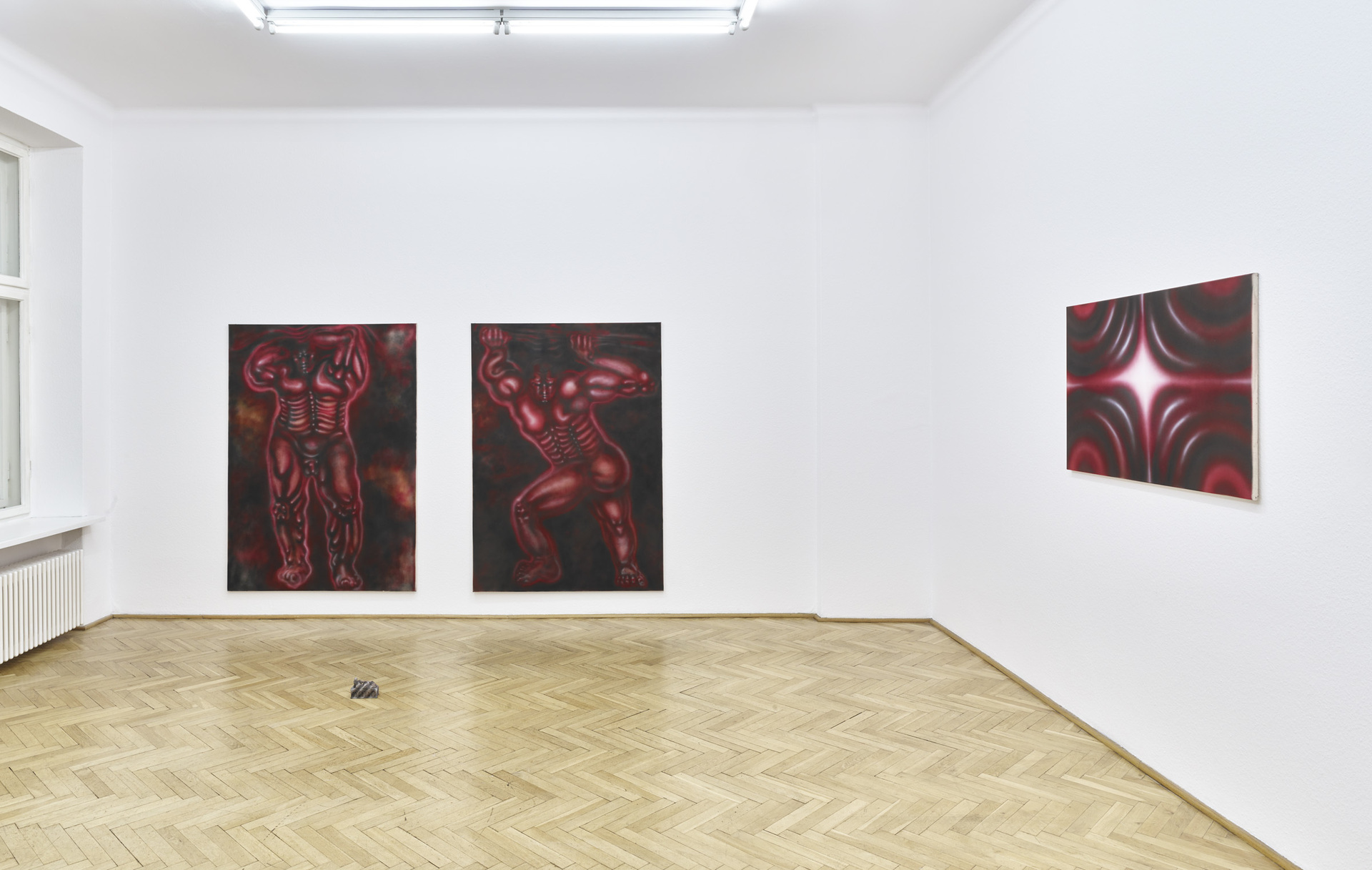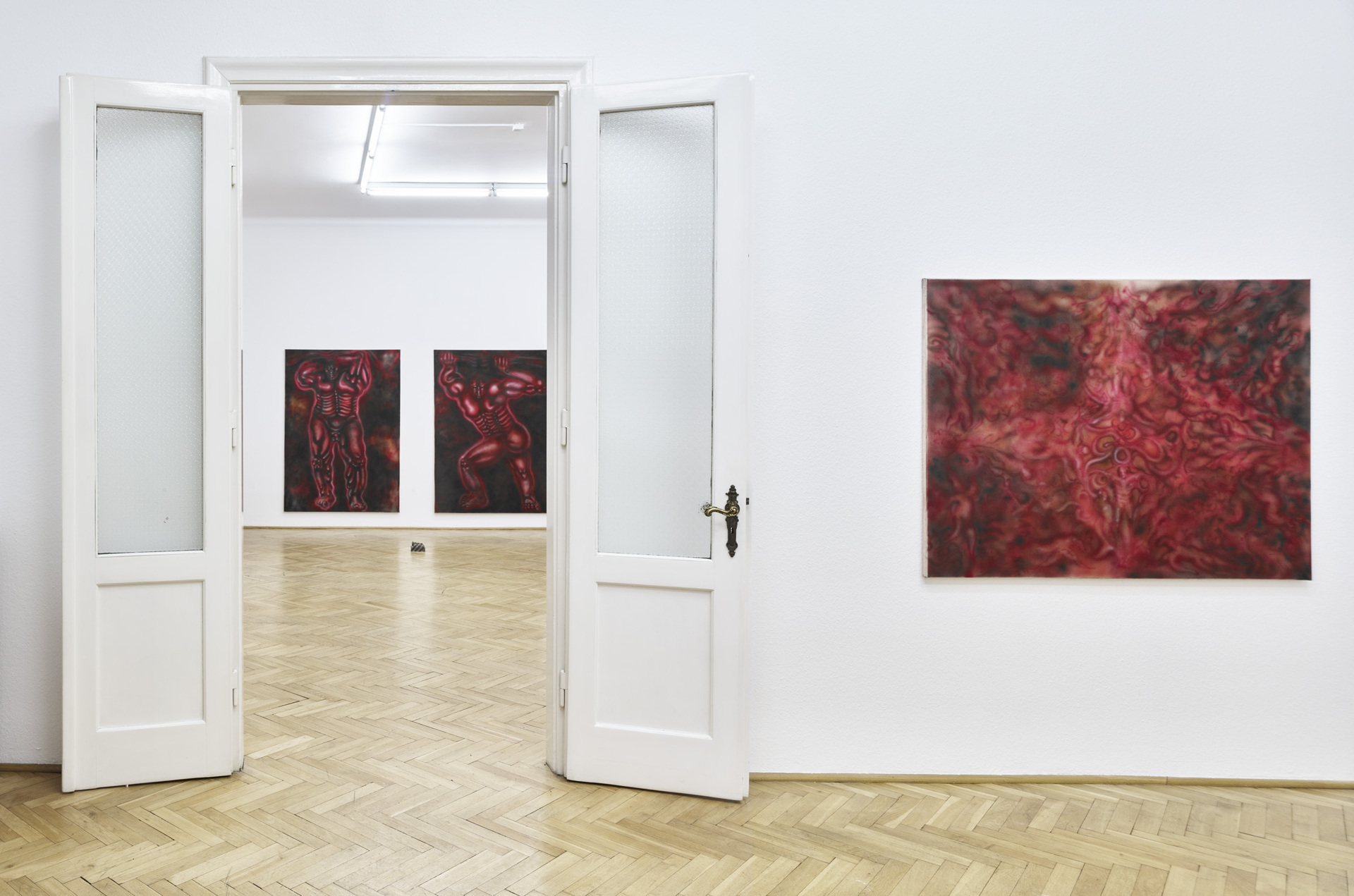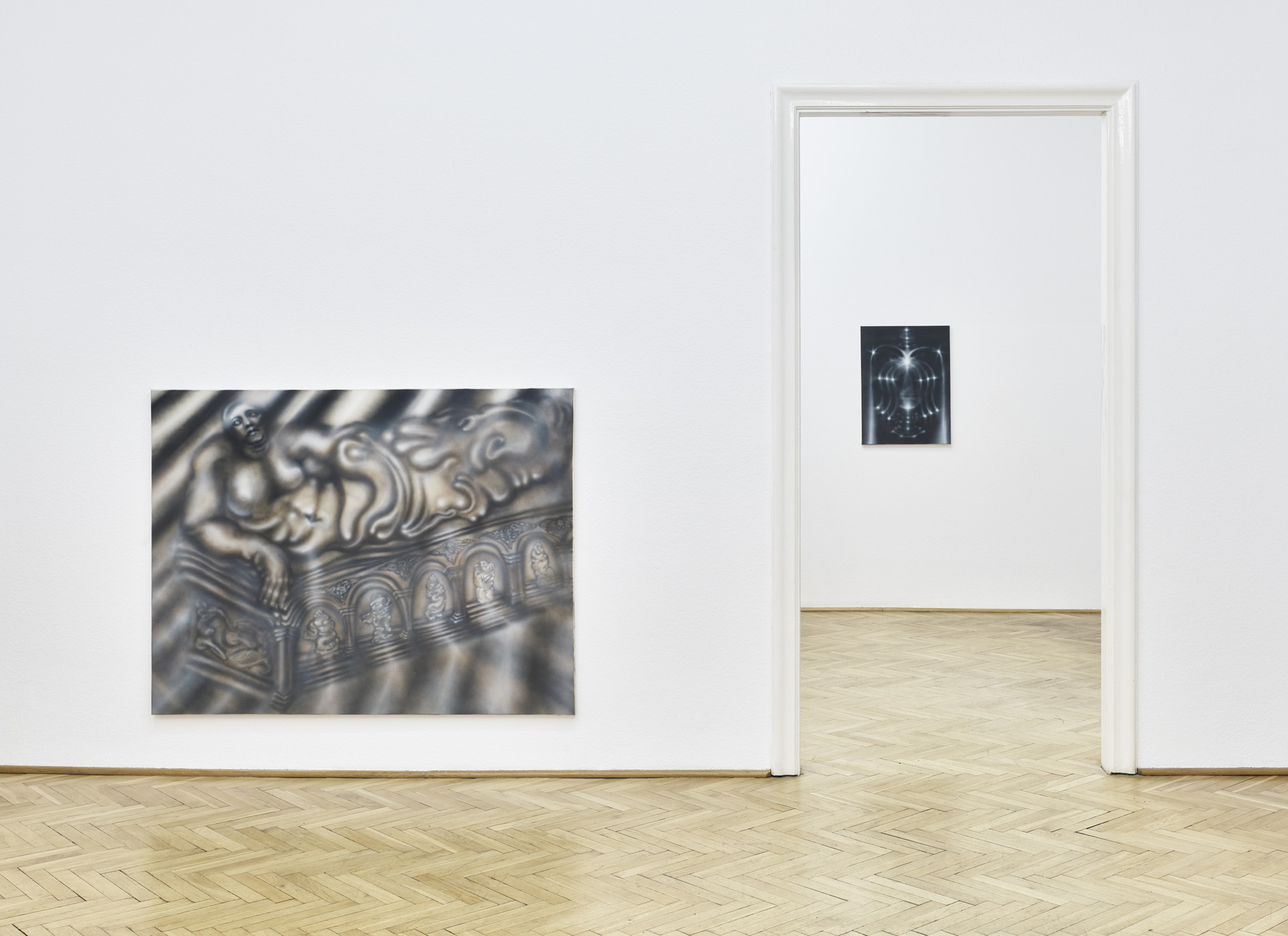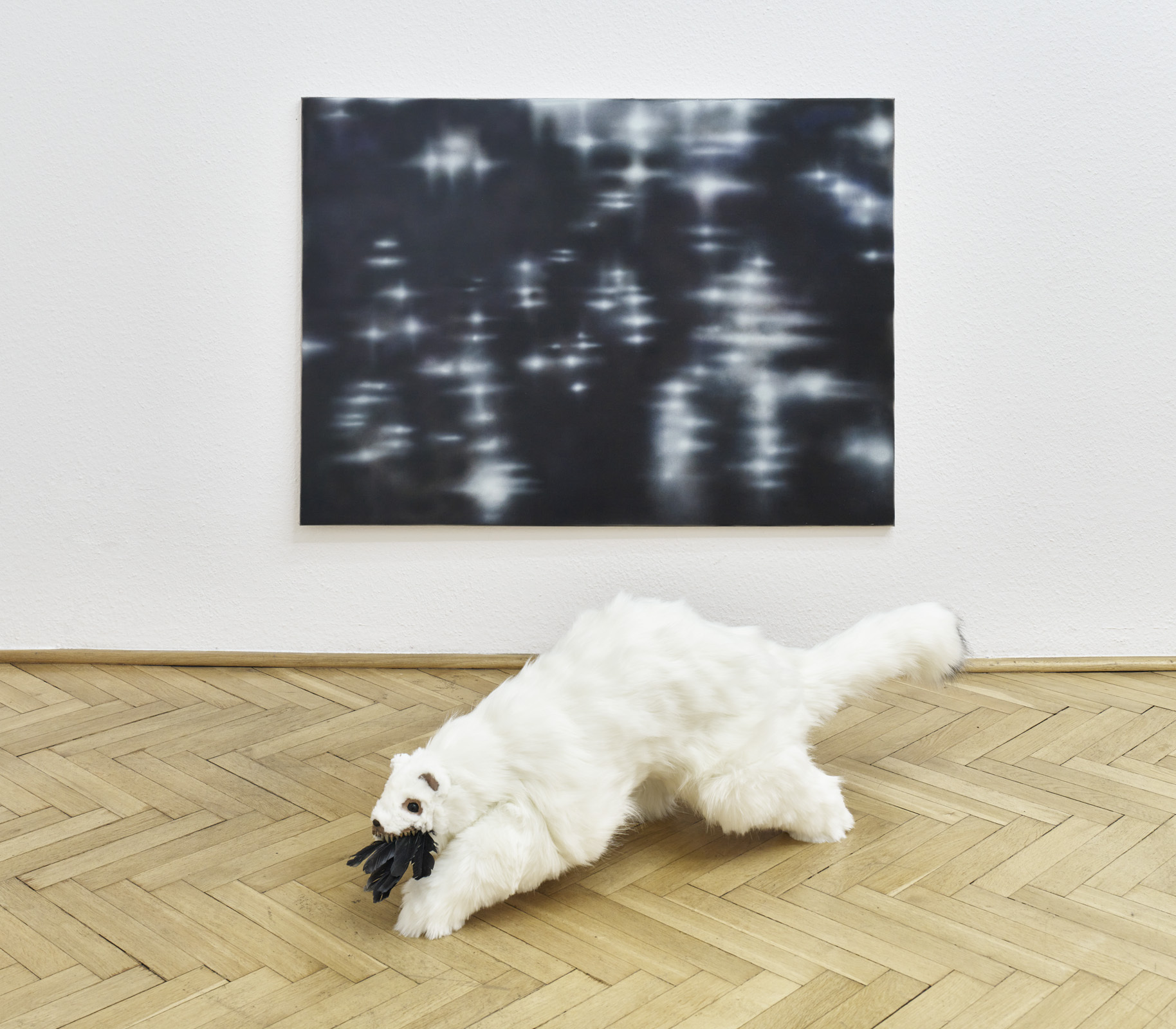Archive
2022
KubaParis
False Door




![VERONIKA HAPCHENKO liquid, blood [płyn, krew], 2021-2022, Acrylic and ink on canvas 60 x 50 cm | 23 31/50 x 19 69/100 in](https://backend.kubaparis.com/assets/archive/2022/02/mx/Impex-2022-01-44284.jpg?v=1658236543)
![Veronika Hapchenko cherubs [cherubini], 2021-2022 Acrylic and ink on canvas 120 x 110 cm | 47 6/25 x 43 31/100 in](https://backend.kubaparis.com/assets/archive/2022/02/mx/Impex-2022-01-44298-1.jpg?v=1658236546)
Location
Import ExportDate
19.01 –25.02.2022Curator
–Photography
Błażej PindorSubheadline
"False Door" is a solo exhibition by Veronika Hapchenko spanning painting and sculpture. In the architectural tradition of Egypt, the false door served as a place of symbolic connection between the world of the living and the world of the dead. With her new work, Hapchenko ponders Nikolai Fedorov's nineteenth-century theory of immortality and the relevance of Russian Cosmism today.Text
Veronika Hapchenko „False Door"
January 20th – February 26th 2022
Import Export
Aleje Ujazdowskie 22/3,
00-478 Warsaw
Import Export is excited to present “False Door” – a solo exhibition by
Krakow-based, Kyiv-born artist Veronika Hapchenko.
Hapchenko recently graduated with an MFA in Painting from the Krakow Academy
of Fine Art, after first studying stage design at the National University of Cinema and
Television in Kyiv, Ukraine. Embracing both painting and object making, Hapchenko’s
work is concerned with Russian philosophy and cultural tropes of the former USSR
– as well as with the strong ties between esoteric beliefs, politics and militarism that
they entail. Looking to philosophical theses, historiography and oral history in her
work, the artist traces legends and taboossurrounding revolutionary artists, political
figures and the pres ence of occult in their lives and output.
For her exhibition at Import Export, Hapchenko created a series of paintings and
mixed- media objects thematising Russian Cosmism. Originating in the esoteric
futurism of Tsarist Russia, Cosmism was further developed in the early twentieth
century by thinkers such as Nikolay Fyodorov and Konstantin Tsiolkovsky. The
former argued that mortality likened humans to animals and that the next stage of
human evolution would include immortality. The latter, a practising scientist and
pioneer in cosmonautics, believed that immortality and a carefree human existence
could be achieved through the colonisation of space. All the dead who ever lived on
Earth would then be resurrected and exist alongside the living there.
Taking cues from the language of theatre, playing with scale and height, Hapchenko
has rendered her version of Fyodorov’s and Tsiolkovsky’s cosmic future in “False
Door”. Titled after the Egyptian architectural ornament believed to be the meeting
point for the living and the dead, the exhibition juxtaposes portrayals of the cosmos
with the elements of life on Earth. Large-scale figures of giants carrying celestial
spheres materialise alongside portrayals of substances known to be found in the
ancient sarcophagi (blood, milk and honey) and tombstones (one painted, one
printed in miniscule 3D). Forgoing value judgements in favour of contemplating
taboos and hidden meanings, Hapchenko ponders the relevance of the theory of
immortality and Russian Cosmism today.
IG @importexport.art
Import Export
Aleje Ujazdowskie 22/3
00-478 Warszawa
Polska
Sonia Jakimczyk